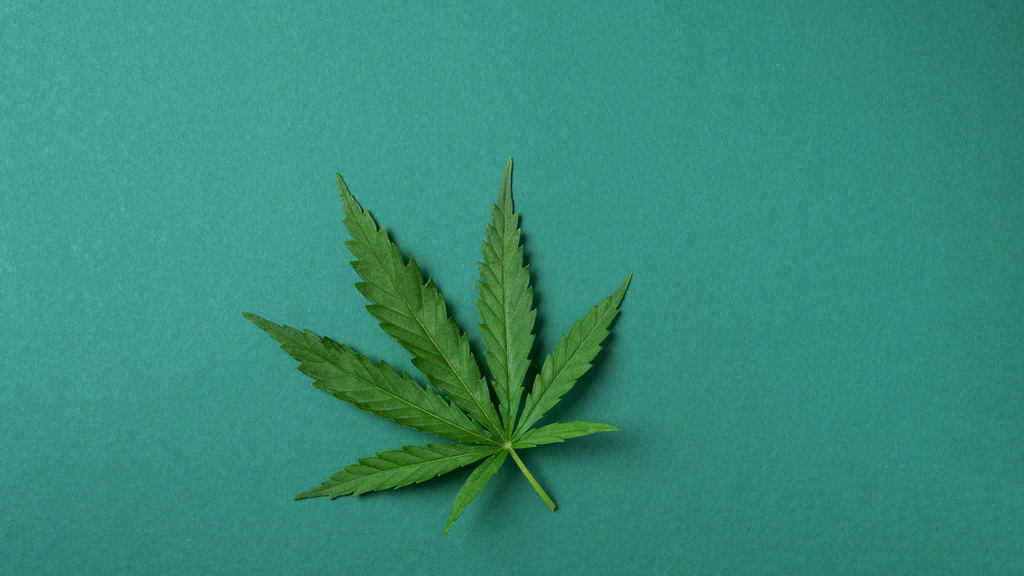As the landscape of cannabis and hemp-derived products evolves, THC-P emerges as a potent cannabinoid capturing the attention of enthusiasts and researchers alike. Known for its strong psychoactive effects, THC-P has become a focal point for those seeking more profound experiences.
However, with its increasing popularity comes concerns for those who consuming THC-P, particularly regarding how long THC-P stays in your system, its detectability in drug tests, and the implications for both recreational users and professionals.
If you've found yourself wondering "How long does THC-P stay in your system?" understanding THC-P's staying power in your body is the first step, especially with drug tests becoming a common prerequisite for employment and legal scrutiny. This guide dives deep into the metabolism, detection times, and the factors influencing how THC-P affects you, aiming to provide clarity and guidance for safe and informed use.
What is THC-P?

THC-P, or tetrahydrocannabiphorol, stands out as a naturally occurring THC compound found in the cannabis plant, notable for its potency and effects that surpass the well-known Delta 9 THC.
This cannabinoid has sparked interest for its therapeutic potential and unique interaction with the body's endocannabinoid system, offering a different dimension to cannabis experiences. Yet, as THC-P products gain traction, so does the need for a comprehensive understanding of its properties and how it compares with other cannabinoids.
How Does Your Body Process THC-P?
The body's metabolism of THC derived compounds like THC-P is a complex process, influenced by various factors such as liver function and enzyme activity.
Initially metabolized by the liver, THC-P is broken down by enzymes into several metabolites, the most notable being THC-COOH. This process is crucial for understanding both the duration of THC-P's effects and its detection in various tests.
Factors like individual metabolism, frequency of use, and the method of consumption can all affect how quickly THC-P is processed and eliminated. This nuanced interplay determines the presence of THC-P and its metabolites in the body, highlighting the importance of personal factors in its metabolic lifecycle.
Factors Influencing THC-P Metabolism
Individual biological factors play a significant role in how long THC-P stays in your system. Variables such as age, body mass, and metabolic rate can significantly affect the speed at which THC-P is metabolized. Understanding these factors can help gauge potential detection windows for THC-P, providing insights into how long it might be identifiable in various drug tests.
For example, younger individuals with faster metabolisms may process and eliminate THC-P more quickly, reducing detection duration. Conversely, those with higher body mass may experience longer detection times due to slower metabolism and THC-P's fat-soluble nature, which allows it to linger in fat cells. Essentially, a faster metabolism accelerates THC-P breakdown, while a slower one prolongs its presence, affecting how long it remains detectable in drug tests.
This understanding emphasizes the importance of recognizing personal physiological and genetic differences when assessing how THC-P metabolizes and clears from the system.
THC-P Detection Times

If you consume THC of any kind and might be subject to a drug test it is important to understand the detection times of THC-P and the various factors that may cause you to fail a drug test.
Short-term vs. Long-term Use
The frequency of THC-P use significantly impacts its detectability in standard drug tests. Occasional users may find THC-P metabolites present for a shorter duration, while regular users might see extended detection times due to accumulation in the body.
Short-term use of THC-P typically results in a quicker clearance from the body, as the compound and its metabolites haven't had time to accumulate extensively. In contrast, long-term or frequent use leads to accumulation in fat cells, resulting in a prolonged presence in the system.
This can significantly extend the detection window for THC-P in drug tests, as the body requires more time to metabolize and eliminate the accumulated compound.
Testing Methods for THC-P
Different drug tests have varying abilities to detect THC-P, with urine tests, blood tests, saliva tests, and hair strand tests each offering specific windows of detection.
Each method has a different detection window and sensitivity, with urine tests being the most common for their balance of window and ease, blood tests offering a shorter detection window, saliva tests useful for detecting recent use, and hair follicle tests capable of detecting use over longer periods.
-
Urine Test: Detect THC-P from a few days up to a few weeks after use, widely used due to their balance between detection window and ease of administration.
-
Blood Test: Provide a narrow window of detection, typically only a few hours to a day, ideal for assessing recent consumption or impairment.
-
Saliva Test: Useful for detecting very recent use, within hours to a couple of days, often employed in roadside testing or immediate consumption assessment.
-
Hair Tests: Offer the longest detection window, capable of identifying THC-P use for up to several months, reflecting a longer history of use but are less commonly used due to higher costs and complexity.
Factors Affecting Detection Times

Not only do usage patterns of THC-P products influence detection times but so do the physical characteristics of the person taking THC-P. Let's explore what these variables look like so you better understand how standard drug tests might impact you.
Individual Biological Factors
Your health metrics, such as hydration levels, diet, and physical activity, can influence how long can THC-P stay detectable. This section explains how lifestyle choices and biological diversity contribute to the variability in THC-P detection times across individuals.
Product Type and Potency
The type and potency of THC-P products used can also affect how long THC-P remains in your system. Highly potent THC-P products lead to a more pronounced accumulation of metabolites, potentially extending the detection period.
Similarly, products that offer a higher bioavailability or those designed for longer-lasting effects, such as edibles, can result in THC-P staying in the system for a more extended period compared to products with lower potency or those intended for quick release, like some THCP vapes or THCP gummies and tinctures.
Navigating Drug Testing
Knowledge is power and ultimately taking THCP is a personal choice. However, it is important to know that if drug tests are administered at your place of work or for any other reason how your choices may impact standard urine tests.
Preparing for a Drug Test
With a drug test coming up, understanding how to navigate the potential for THC-P detection is paramount. This section offers strategies for those who have consumed THC-P and are facing a drug test, highlighting detoxification methods and timing considerations.
The most common-sense strategy includes abstaining from THC-P consumption altogether. However, you can also consume THCP products and be sure to give yourself ample time to allow the body to metabolize and eliminate the compound.
The best ways to accomplish this is by staying hydrated to facilitate detoxification and considering a healthy diet and exercise to boost metabolism. However, it's important to remember that the effectiveness of these methods can vary based on individual metabolism, the frequency of use, and the potency of the THC-P products consumed.
Minimizing Detection Risks

Of course, no one wants to fail a drug test but what if it's too late? Is there anything you can do if you've taken THCP and you've been surprised by an upcoming drug test? Let's take a look at some of the options you may have.
Detoxification and Natural Clearance
When it comes to the new THC based compound THC-P and its stay in your system, accelerating your body's natural detoxification processes can be key. Engaging in regular physical activity, consuming ample amounts of water, and opting for a diet rich in fiber and antioxidants are recommended strategies.
These efforts will aid in flushing THC-P metabolites through increased metabolic rates and improved digestion. It's not about just passing a drug test but about supporting your body's health and readiness for any upcoming drug test. To minimize detection risks of THC-P in drug testing, it's essential to cease usage well before the expected test, understand the type of test being administered, and engage in healthy lifestyle practices that promote metabolism and detoxification.
Moreover, the inclusion of certain supplements known to aid in detoxification can also be beneficial. Ingredients like milk thistle, dandelion root, and green tea have been noted by some for their liver-supportive and detoxifying properties.
However, it’s crucial to approach detox supplements with caution, ensuring they don't interfere with THC-P detection times or cause unwanted health effects. Personal research and possibly consulting a healthcare professional can provide guidance tailored to your situation, especially when considering detox products.
Diet, Hydration, and Exercise
Diet, hydration, and exercise play pivotal roles in minimizing detection risks of THC-P. A balanced diet that includes lean proteins, vegetables, and fruits, alongside regular hydration, can significantly aid in metabolizing and eliminating THC-P from the body.
Water, being a natural detoxifier, helps in diluting urine, which might reduce the concentration of THC-COOH, the metabolite often tested in drug tests, making regular hydration a simple yet effective strategy. Exercise, on the other hand, increases your metabolism, which can help in burning fat cells where THC compounds are stored.
Activities like running, cycling, and swimming are effective in boosting your overall metabolism. However, it's important to note that excessive exercise right before a drug test might release stored THC from fat cells into your bloodstream, potentially affecting test results. Thus, balance and timing are key considerations in using exercise as a detox method.
THC-P and Professional Life
Incorporating THC-P or any other THC product for that matter, into your lifestyle while maintaining professionalism involves careful consideration of legalities, workplace policies, and personal well-being.
Addressing Workplace Concerns
Understanding the implications of THC-P use in relation to drug testing and professional standards is crucial. It's advisable to research and comply with employer policies regarding cannabinoid use, and to consider the timing of consumption in relation to work responsibilities.
Balancing THC-P use with a commitment to professional performance and adhering to legal requirements in your region can help integrate this aspect of personal life without compromising career goals.
Being proactive in understanding these policies can help you make informed decisions about THC-P consumption, ensuring it doesn't jeopardize your career goals or put you at risk of failing a drug test. Moreover, engaging in open and honest dialogue with HR or your employer about THC-P use can sometimes foster understanding and accommodation.
However, this approach requires a careful assessment of your workplace culture and the potential risks involved. Privacy and discretion should guide your decisions, along with a consideration of the potential implications on your professional reputation and relationships.
Is THCP Right for You?
Only you can answer that question for yourself however, understanding THC-P's detection times and its persistence in the system is crucial for users who navigate professional landscapes with drug testing protocols. Factors such as metabolism, body composition, usage frequency, and the specific test used play significant roles in determining how long THC-P remains detectable.
Being informed about these aspects allows individuals to make educated decisions about their consumption, balancing their personal preferences with professional obligations. This knowledge empowers users to responsibly manage their THC-P use while maintaining compliance with workplace policies and legal standards.
If you do decide that THC-P products are right for you ensure that you buy THC-P online from a reputable online retailer like Everyday Delta. Not only will you find the best THC-P products available, but you can rest assured that they are all backed by third party lab test results indicating their legal compliance, potency, purity, and most importantly safety.
*By using this website, you agree to and are subject to the following Legal Disclaimer, which is part of our Terms of Service. The information provided on this website does not and is not intended to constitute legal advice or reliable statements of the status of any laws.

